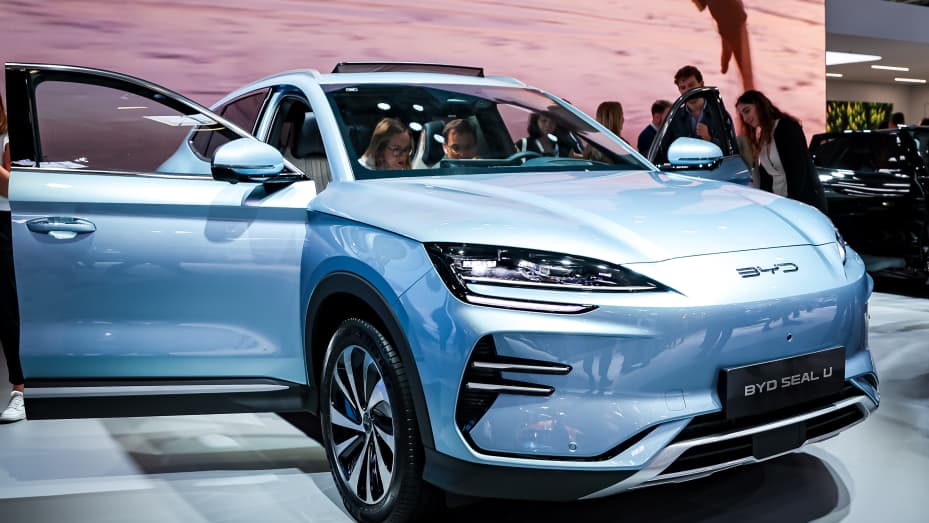Europe announced increased tariffs on Chinese electric vehicles, prompting concerns from automakers about potential price hikes starting Friday, affecting firms like BYD and potentially European and U.S. automakers with China production, including Tesla
On Thursday, The European Union confirmed that it would increase tariffs on electric vehicles imported from China. Consequently, one automaker has issued new warnings that it may need to raise prices.
In June, the European Commission, the executive branch of the European Union, announced its intention to impose such levies following an investigation that determined that battery electric vehicle (BEV) manufacturers in China receive “unfair” subsidies.
European regulators affirmed on Thursday that these duties, which have been lightly adjusted to range from 17.4% to 37.6%, will take effect on Friday.
The levies will impact a variety of automakers, including the Chinese behemoth BYD, as well as European brands that manufacture vehicles in China and the U.S. giant Tesla, which operates a factory in Shanghai.
At the same time that the EU’s decision is being made, Chinese manufacturers are aggressively expanding into Europe with competitively priced offerings, which poses a threat to the region’s top automakers, many of which need to catch up in the development of electric vehicles.
According to the European Commission, these automobile manufacturers have reaped the rewards of “unfair subsidies.”
The tariffs have already been met with resistance from automakers.
On Thursday, Nio, a Chinese electric vehicle manufacturer, stated that it is presently maintaining the prices of its vehicles sold in Europe. However, it must be partially ruled out that prices may be adjusted later due to the imposition of these tariffs.
On Thursday, a spokesperson for Xpeng, an additional Chinese electric vehicle startup, stated that consumers anticipating the delivery of their vehicles or who place new orders before the tariffs’ implementation will be “safeguarded from any price increases.”
It refrained from commenting on whether the levies would lead to increased pricing.
When contacted by CNBC, Geely declined to provide a comment.
Tesla indicated that it would likely raise the prices of its Model 3 vehicle in Europe when the EU initially announced the tariffs last month. The European Union still needs to specify the specific tariffs that Tesla will be subject to. However, it was noted last month that the U.S. automaker “may receive an individually calculated duty rate.”
Negotiations between the European Union and China
Provisional tariffs that are implemented on Friday are valid for four months. EU member states must vote on “definitive duties” during this period, which would extend for five years.

Beijing criticized the EU’s tariffs as a “protectionist act” in June, and Chinese and EU officials have conducted numerous meetings to discuss the tariffs.
He Yadong, spokesperson for the Chinese Commerce Ministry, expressed his optimism that the two parties will “achieve a mutually acceptable solution as soon as possible by meeting halfway, demonstrating sincerity, expediting the consultation process, and relying on rules and reality.”
EV manufacturers from China have pledged their commitment to Europe.
Chinese electric vehicle manufacturers have reaffirmed their commitment to the European market, where they have been expanding in recent years.
Xpeng declared its dedication to “making long-term commitments to these markets and providing high-quality, innovative products to the ever-growing European customer base.”
The company stated that it is “conducting an exhaustive evaluation of the viability of establishing local manufacturing capabilities in Europe.”
At present, all of Xpeng’s automobiles are assembled in China. A European factory could mitigate some of the tariffs.
The previous year, BYD, one of the largest EV manufacturers in China and globally, announced its intention to establish its inaugural European facility in Hungary. However, the company did not provide a specific timeline for the project.
On the other hand, Nio declared on Thursday that it is “wholly dedicated to the European market.”
The company is committed to promoting consumer interest and competition, and it aspires to achieve a resolution with the EU before implementing definitive measures in November 2024.



